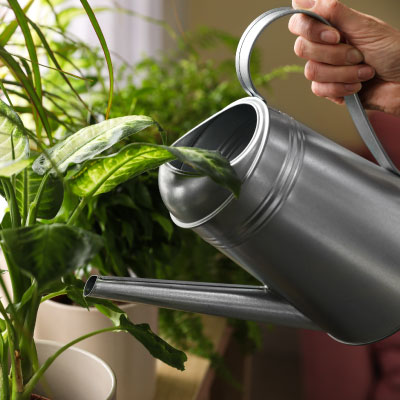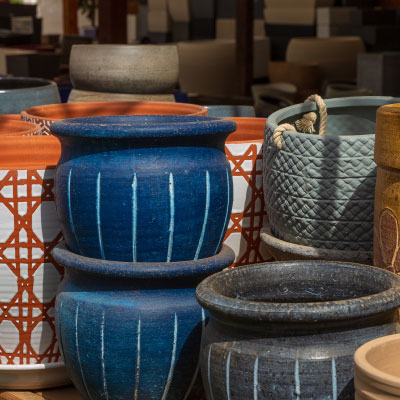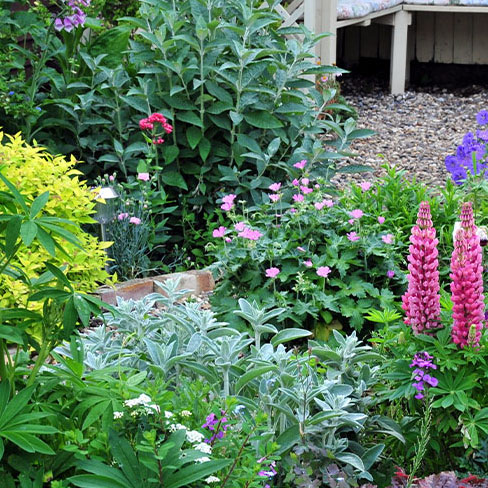What are the pros and cons
of planting in the ground,
in raised beds, or
in containers?
At a Glance
Planting in the ground
Planting in the ground is a great way to incorporate edible plants into your landscape without needing any containers or lots of additional soil. You do, however, need to loosen up the soil and mix in amendments to improve nutrient levels and moisture drainage. If the soil is too compacted, your plants will struggle to spread their roots. It may also take longer for the soil to warm up and thaw after winter.
Planting in raised beds
Planting in raised garden beds helps ensure great drainage, warmer soil temperature in early spring, and loose soil that’s easy to mix up with compost and amendments. The downside is that you need to construct a raised bed, buy lots of soil to fill it, and you won’t be able to move it around.
Planting in containers
Planting in containers allows you to move your plants around easily, and you can grow them on the patio or balcony if you don’t have much green space. Moisture tends to evaporate from pots more quickly, so you’ll have to water frequently in summer. Less soil also means less available nutrients, so you may need to fertilize more frequently
Watch & Learn!
What are the advantages and disadvantages of planting in a container, raised bed and in the ground? Rob Sproule spells it out in this video.
Garden Beds
Pros:
- Great for incorporating edible plants into the landscape
- No need to buy containers or lots of additional soil
Cons:
- You must loosen up the soil and mix in amendments to prevent compaction and poor drainage
- Will take longer for the soil to warm up after winter
Raised Beds
Pros:
- Fantastic drainage
- Easy-to-control soil quality
- Temperature is warmer in early spring
Cons:
- You’ll need to purchase lots of additional equipment and soil
- You can’t easily move your raised bed
Containers
Pros:
- Easy to move
- Can be grown on patios and balconies
Cons:
- Moisture evaporates more quickly so you’ll need to water more frequently
- Less soil means less nutrients, so you may need to fertilize frequently



